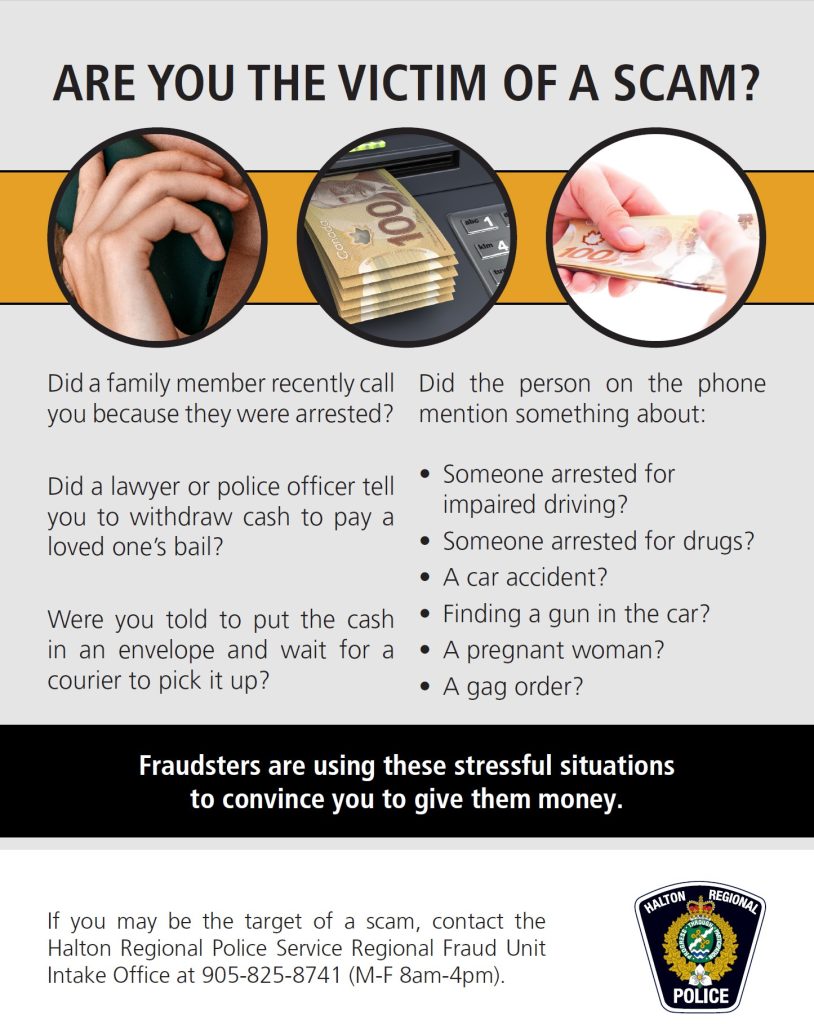Campaign combats increase in ‘Grandparent Scams’ in Burlington, Oakville, Milton
Published December 13, 2022 at 10:05 am

Halton Regional Police have launched a new campaign to help combat an increase in Emergency or Grandparent Scams being seen across Oakville, Burlington, Milton and Halton Hills.
In an effort to help raise awareness during the holiday season, police are encouraging local residents to talk to older family members about this ongoing scam.
To help combat the fraud and warn seniors of what to look for, police have developed a new poster that will soon be put up at most major banks across the region (see image below).
“The poster is designed to serve as a warning to potential victims attending their banks to withdraw funds, ” said Halton Region Police. “It outlines some of the common scenarios fraudsters are using to convince victims to give them money.
“The Regional Fraud Unit has noted a recent increase in these types of scams being reported over the past couple months and is concerned the increase may continue with the holiday season approaching.”
What are Emergency (Grandparent) Scams?
These types of scams typically involve the victim receiving an unsolicited phone call regarding a loved one being in distress. The perpetrators falsely identify themselves as a loved one, or impersonate a police officer and/or other participants of the criminal justice system (such a lawyers, bailiffs, and “bondsman”), falsely claiming that the loved one is in police custody as a result of a specific incident. They request a large sum of money to have the supposed loved one released from custody, or to pay for associated bills/fines accrued as a result of the alleged incident. The funds requested can be in the form of a direct cash payment, bank transfers, various gift cards, and digital currency. While the scam is ongoing, and the payments are being made, the perpetrators will on occasion use the threat of a fictitious “gag order” to prevent the victim from discussing the matter with anyone else.
Tips to protect yourself:
- Attempt to verify the caller’s identity – do not volunteer any information, and further ask very specific probing questions about the caller.
- Request to call back the initial caller – then independently find the number of the police service (or other purported agency in question) and call them directly to clarify the situation. If unsure, call your local police service and ask them for assistance.
- Attempt to directly call the loved one in question and clarify the matter with them.
Remember – Fraudsters will count on your good will to act quickly and help a loved one. Take your time and use above noted tips to protect yourself.
Additional information on frauds and scams can be found here, or through the Canadian Anti-Fraud Centre website.

insauga's Editorial Standards and Policies advertising






